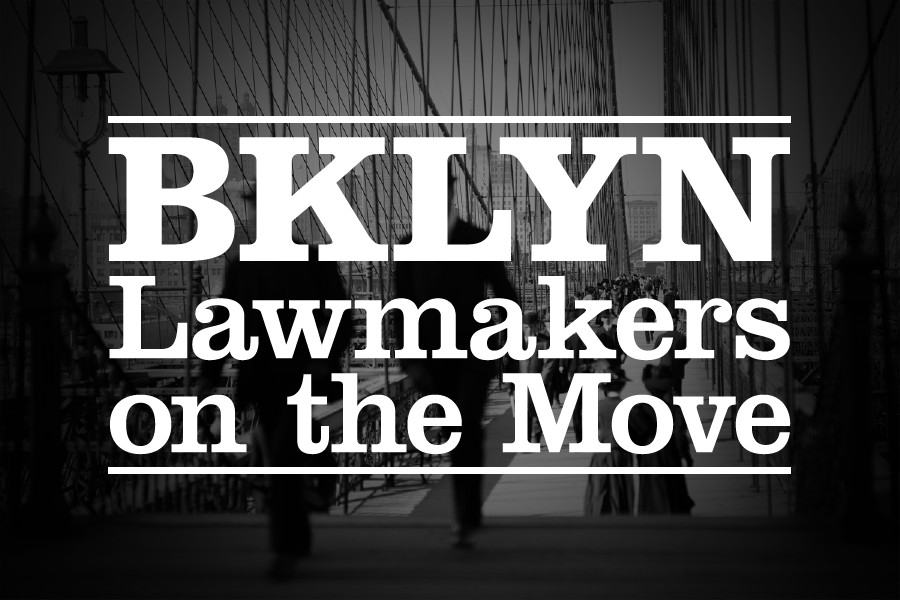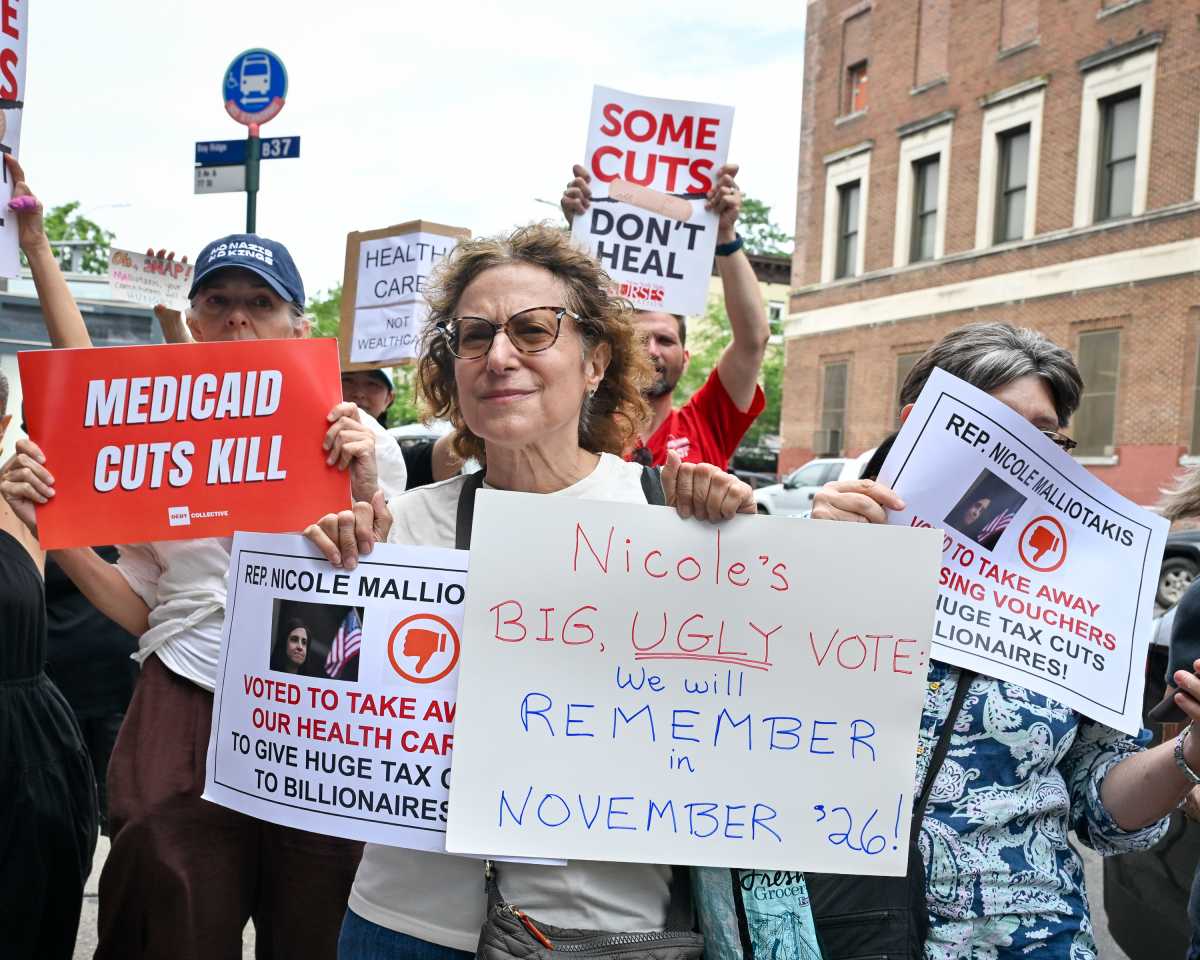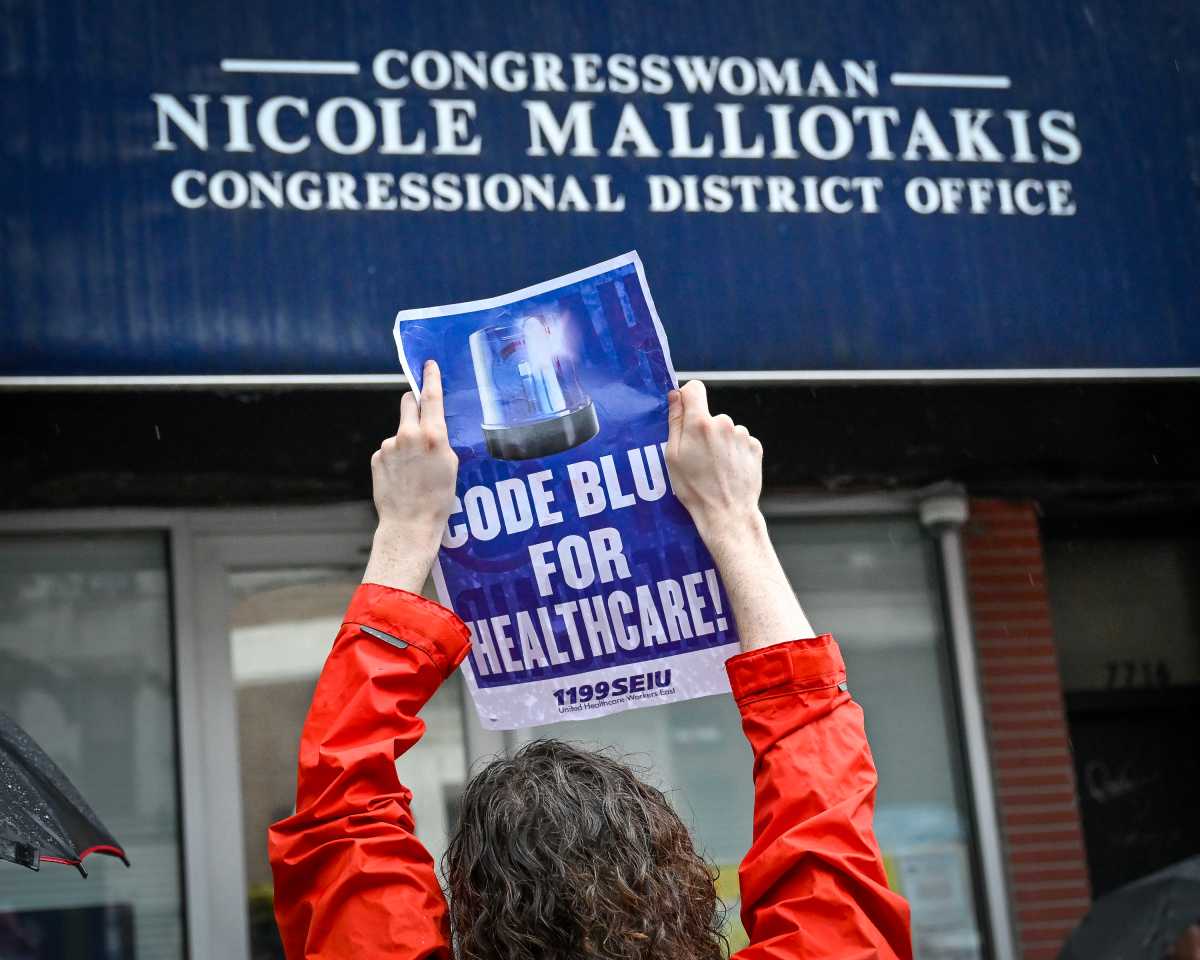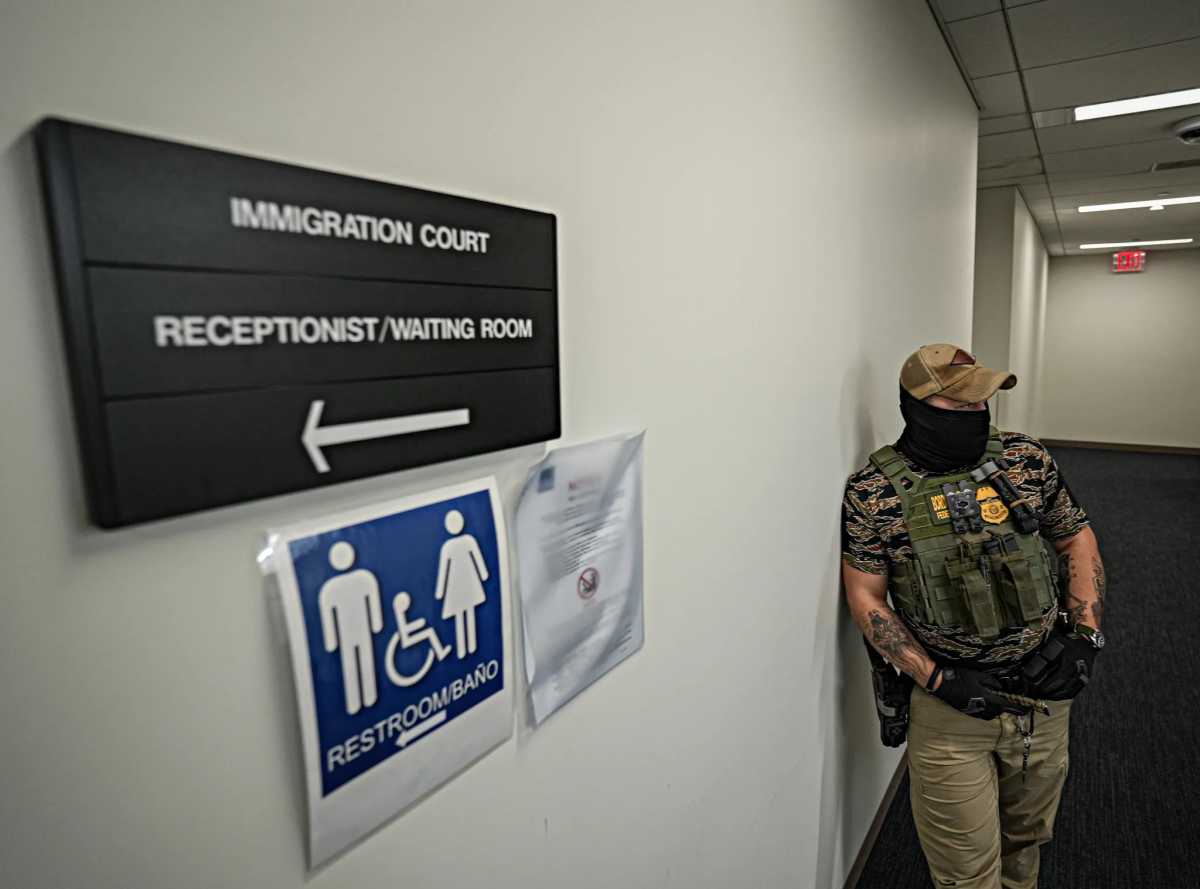Brannan Hosts Groundbreaking For Ft. Hamilton Athletic Field

City Council member Justin Brannan (D-Bay Ridge, Dyker Heights, Bath Beach, Bensonhurst) will hold a groundbreaking ceremony for the renovation of Fort Hamilton Athletic Field today.
The new field is part of Fort Hamilton High School and will include entirely new tack and field surfaces, updated goal posts and perimeter fences and a brand-new scoreboard. The School Construction Authority headed up the project to replace the school’s football field and track, which have not been updated since 2001.
Former Councilman Vincent Gentile allocated $2.8 million to fund the $5.5 million project, which was close to his heart given his ties to the school, according to initial reports. Additionally, Former Council Speaker Melissa Mark-Viverito also allocated $1.5 million to the project, and Borough President Eric L. Adams kicked in $1.2 million last year.
The high school students use the athletic facilities for both daily gym classes and after-school sports games and practices, but the track and field are also open to the public to enjoy for recreational use.
The event is slated for 1:30 p.m., today, May 30, at the Fort Hamilton Athletic Field (between Colonial Road and Shore Road from 83rd to 85th Streets) in Bay Ridge.
Lander Hosts Youth Rally To Ban Plastic Foam

City Council member Brad Lander (D-Park Slope, Windsor Terrace, Kensington) will hosts a Youth Rally to ban plastic foam at City Hall today.
The event co-hosted by Cafeteria Culture will bring over 200 students together, in honor of World Ocean Day 2018, to call attention to the global plastic marine pollution crisis and to urge NYC Council Members to take immediate, local action. The group are urging elected officials to pass Int. 135, a bill to ban expanded polystyrene foam (EPS, or commonly called “styrofoam”) and to oppose the industry-backed legislation to recycle EPS.
In 2013, NYC Council voted “yes’ to ban foam, but two industry-funded lawsuits have blocked this law. Students want their voices heard for plastic-free oceans and to protect the health of marine wildlife, seafood and humans.
EPS foam is one of the most common types of plastic pollution. Environmental advocates are particularly concerned about EPS foam because of the way it easily breaks up into tiny, toxic pieces that enter local waterways at alarming rates. Once in the water, styrofoam acts like a sponge, absorbing chemical pollutants, like pesticides, that make it even more toxic before it is eaten by marine organisms as small as microscopic plankton, the base of our food chain, to giant filter feeding whales.
Toxic and polluting EPS foam is made from styrene and benzene, both petroleum based chemicals that are toxic from the start of production. Styrene is recognized as a known animal carcinogen and found “reasonably anticipated to be a human carcinogen” by the National Toxicology Program and “probably carcinogenic to humans” by the International Agency for Research on Cancer. Over 100 US communities have already banned EPS foam, including Washington, DC, San Francisco, and most recently, Baltimore City, after 200 students rallied at City Hall.
The event is slated for 11 a.m. to 12-noon, today, May 30, at the Steps of City Hall in Lower Manhattan.
Mosley Denounces SCOTUS Decision On Labor Laws

Assembly member Walter T. Mosley (D-Clinton Hill, Fort Greene, Crown Heights) denounced the Supreme Court decision in Epic Systems Corp v. Lewis last week.
The Court, in a 5-4 decision, ruled that private-sector employees do not have the right to enter into class-action lawsuits to challenge violations of federal labor laws. The case concerns tens of thousands of employees at three companies — Epic Systems Corp., Ernst & Young LLP, and Murphy Oil USA Inc. — who were forced to sign away their right to join class-action lawsuits against their employers as a precondition to being hired, according to reports.
The controversial ruling means that workers do not have the right to take bosses to court over alleged violations of federal labor laws. It also means bosses can force workers to arbitrate complaints individually instead of collectively, which overwhelmingly slants in favor of employers. The precedent has many worried that Janus v AFSCME, will also favor bosses over workers. The Supreme Court will rule any day now on Janus v. AFSCME Council 31, the anti-union landmark Illinois case, and the justices are expected to side against government employee unions.
The legal issue is whether the current fees paid by non-union member Mark Janus to AFSCME Local 2600 violate his first amendment freedom of speech. Janus is a child support specialist at the State of Illinois Department of Healthcare and Family Services. For more than 40 years – since the Supreme Court ruled in the 1977 Abood v. Detroit Board of Education – the laws in Illinois and 21 other states allow a government worker to not join a union. However, they must pay a “fair share” fee to cover costs for representing them. The Janus lawyers argued in their brief that the fee Janus pays “subsidizes” an “advocacy organization” that Janus does not support.
“The recent Supreme Court decision in Epic Systems Corp v. Lewis was a blow to unions around the country and signals the likelihood of an anti-union decision in the Janus v. AFSCME case. In debating our budget, New York State recognized these threats to unions. Janus v. AFSCME in particular would allow government employees to choose not to pay union dues, which would hobble the organizing power of unions and workers. Unions made the middle class in this country, and it is our job to protect them in the face of Supreme Court threats,” said Mosley.
BK Lawmakers Honor Pioneer Brooklyn Bridge Engineer



City Council member Stephen Levin (D-Brooklyn Heights, DUMBO, Williamsburg, Boerum Hill), Majority Leader Laurie A. Cumbo (D-Clinton Hill, Fort Greene, Crown Heights) alongside Assembly member Jo Anne Simon (D-Brooklyn Heights, Downtown Brooklyn, Cobble Hill, Carroll Gardens, Gowanus, Park Slope, Boerum Hill, DUMBO) came together yesterday to honor the legacy of local Brooklyn Bridge engineer, Emily Warren Roebling.
On Tuesday, Brooklynites, historians, and admirers alike gathered in remembrance of the accomplishments of the engineer, advocate, and trailblazer. Emily Warren Roebling’s most notable accomplishment is tied to the iconic Brooklyn Bridge, whose construction she oversaw in the 1800’s. The event also included a co-naming ceremony at the intersection of Columbia Heights and Orange streets, that acknowledges the engineer’s deep connection to the community where she once lived.
Historians have said the Brooklyn Bridge likely wouldn’t be standing if it were not for Roebling. After her father-in-law John Roebling passed away, his son, Washington, took over construction. Not long after, however, he became bedridden with ‘the bends’ and lost his eyesight. Emily took over much of the chief engineer’s duties, including day-to-day supervision and project management. Together as a team, Emily and Washington planned the bridge’s continued construction, while Emily managed the public duties of engineer.
She led the way back then, and through her legacy she continues to lead the way today. Though her circumstances are unique, Emily fought to prove that talents and ability are not the exclusive domain of one gender. Her story, one of determination, ambition, and intellect is one we are fortunate to have,” said Levin.
“With this street co-naming, we are reclaiming what was stolen from so many women in history, the ability to forge their own paths, under their own names, with full recognition and agency. Let the record be clear that Emily Warren Roebling’s tireless efforts and leadership were critical to the completion of the Brooklyn Bridge, a global icon of New York City,” said Cumbo.
“Emily Warren Roebling was a pioneer and played a vital role in building one of Brooklyn’s most iconic structures – the Brooklyn Bridge. Roebling was intelligent and savvy, an advocate for equal rights, and had an aptitude for navigating New York politics. I am thrilled that we are co-naming a street in Brooklyn Heights in her honor as she contributed so significantly to our borough and our city,” said Simon.










